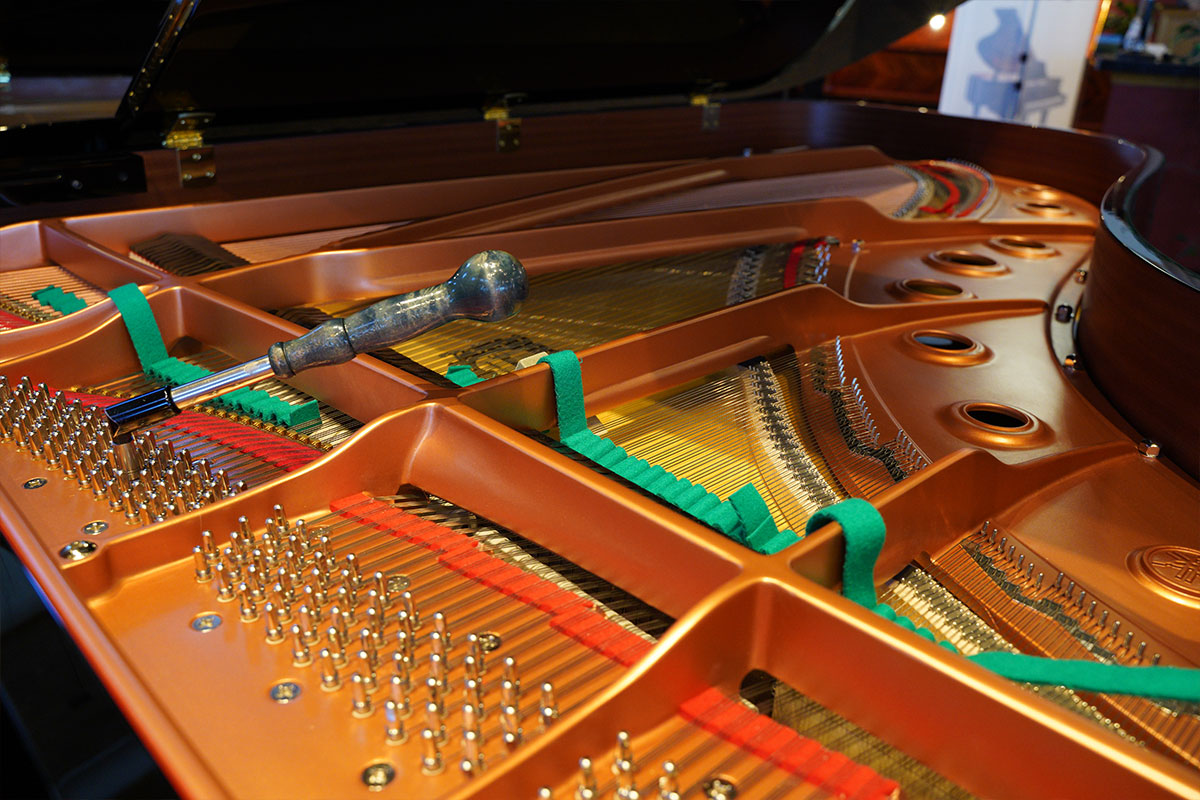
Piano Tuning in Madison & Janesville, WI Area
Piano tuning is the adjustment of the tension in piano strings to adjust the piano’s pitch. Pianos have approximately 230 strings that need to be adjusted to keep your piano in tune. Pianos go out of tune due to seasonal temperature and humidity variations. Pianos tend to go flat in the winter when the humidity is low, and go sharp in the summer when the humidity is high. Pianos that haven’t been tuned for several years may require a pitch adjustment.
Due to seasonal humidity changes, we recommend tuning your piano twice a year.
When Should You Tune Your Piano?
How often you tune a piano depends on the environment; temperature and humidity variations are the biggest factors that affect tuning. A piano is made up of three main sound components: strings, hammers, and a soundboard. When temperature and humidity fluctuate, the soundboard expands and contracts. This puts pressure on the strings, leading to notes that are either flat or sharp. Even under perfectly stable conditions, a piano will eventually need tuning as the strings stretch over time.
Generally speaking, we recommend you tune your piano twice a year. In the Madison and Janesville, Wisconsin area, pianos tend to go flat in the winter when the humidity is low, and go sharp in the summer when the humidity is high.
Whenever you purchase a piano, new or used, you should have it tuned four times in the first year. This helps resolve natural adjustments due to temperature and humidity. Additionally, pianos that haven’t been tuned for several years may require a pitch adjustment.
Think of piano tuning as preventive maintenance. Not only will it ensure your notes are correct, but doing so allows a professional to assess your piano’s condition and spot any potential problems before they occur. This can save you expensive repairs down the road.
Piano Tuning Factors Include:
- Time. Even under perfectly stable conditions, a piano will need occasional tuning. Piano strings are subject to very high tension (up to 160 lbs. per string) and naturally stretch over time, causing notes to flatten.
- Heavy usage. The more you play your piano, the faster the strings will stretch. The same holds true if you play it hard.
- Movement and heavy jostling. Any type of movement can affect the sensitive internal components of your piano. It’s recommended you have your piano tuned after every move, but wait a few weeks to give it time to acclimate to the climate in its new environment.
- Defective or broken parts. Normal wear and tear may impact your piano’s internal mechanisms. When these fail (e.g. loose pin block), your piano will be unable to maintain pitch.
Our Happy Clients
Piano Cleaning, Piano Repair, & Piano Tuning in Madison, WI Area
Janesville | Edgerton | Stoughton | Madison | Delavan | Sun Prairie | Middleton | Brodhead | Cottage Grove | Evansville | Beloit | Delafield | Hartland | Fort Atkinson
| Pewaukee and surrounding areas |
